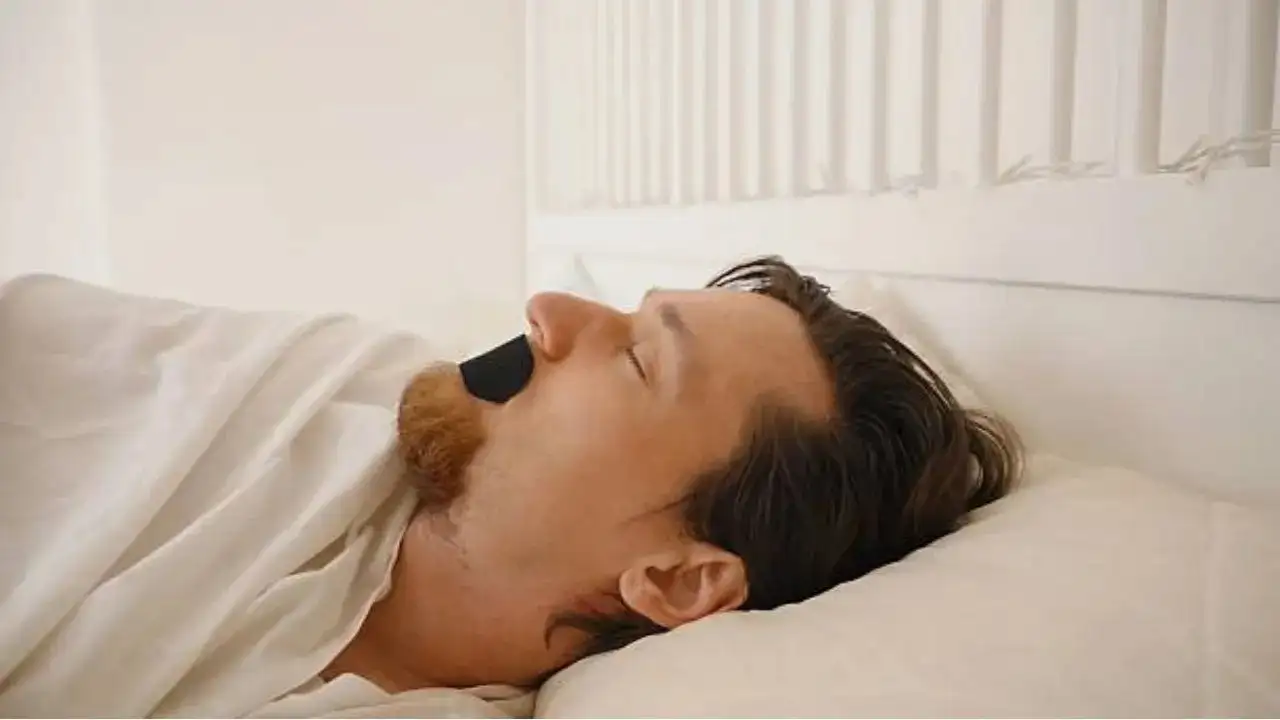
Mouth taping involves placing a piece of skin-safe surgical or porous tape across your lips that encourages nasal breathing
It is a popular notion that mouth taping has immense benefits, and the “hack” involves using tape to keep your mouth shut while sleeping. It works on the thinking that forcing yourself to breathe through your nose can make you feel refreshed and avoid some health-related issues.
However, new research published in the journal PLoS One suggests that mouth taping may not be great for your health and rather cause serious consequences like asphyxiation.
What is mouth-taping?
Mouth taping involves placing a piece of skin-safe surgical or porous tape across your lips that encourages nasal breathing and prevents mouth breathing. If you breathe through their mouths at night, they have a dysfunction in their airways, which means that something is obstructing airflow in their nose, which can be due to a cold, allergies, or an underlying health issue, like enlarged tonsils, a deviated septum, or benign nasal polyps.
While experts believe there is no solid data on how common mouth taping is, many people are trying it out.
According to doctors, it avoids drooling and dry mouths. It also humidifies, warms, and filters irritating particles from inhaled air, apart from improving the oxygen flow in your body.
Is mouth-taping worth it?
According to studies, mouth taping does not lead to meaningful health benefits. Various research on the issue says that those with nasal obstruction face serious health risks from mouth taping, including not getting enough oxygen.
A few experts have said the procedure has modest benefit in those with mild OSA, but the results were not positive enough.
However, doctors believe that mouth taping can be more problematic. When you do not get enough air at night, your body goes into panic mode, dropping oxygen levels and rising carbon dioxide—making you startled awake so you don’t suffocate. This process causes a spike in your heart rate, stress hormones, and blood pressure. And doing it every night can cause strain in various parts of your body, including the brain and heart.
If you have sleep apnoea but have not been diagnosed, as is sometimes the case, mouth-tapping could worsen the condition because it further restricts your oxygen.
Doctors also believe that there is no guarantee that the tape will stay in place. If that little strip becomes loose, it could wind up in your mouth and become a choking hazard.
Other ways to cope with mouth breathing
Experts believe the best way to cope with mouth breathing is to consult your doctor. A healthcare provider can help find out the real trigger for your mouth breathing and personalise your treatment.
You can also try a simple saline nasal spray, decongestant, or antihistamine to help clear things up. Staying well hydrated and sleeping on your side instead of your back may also offer some relief.
